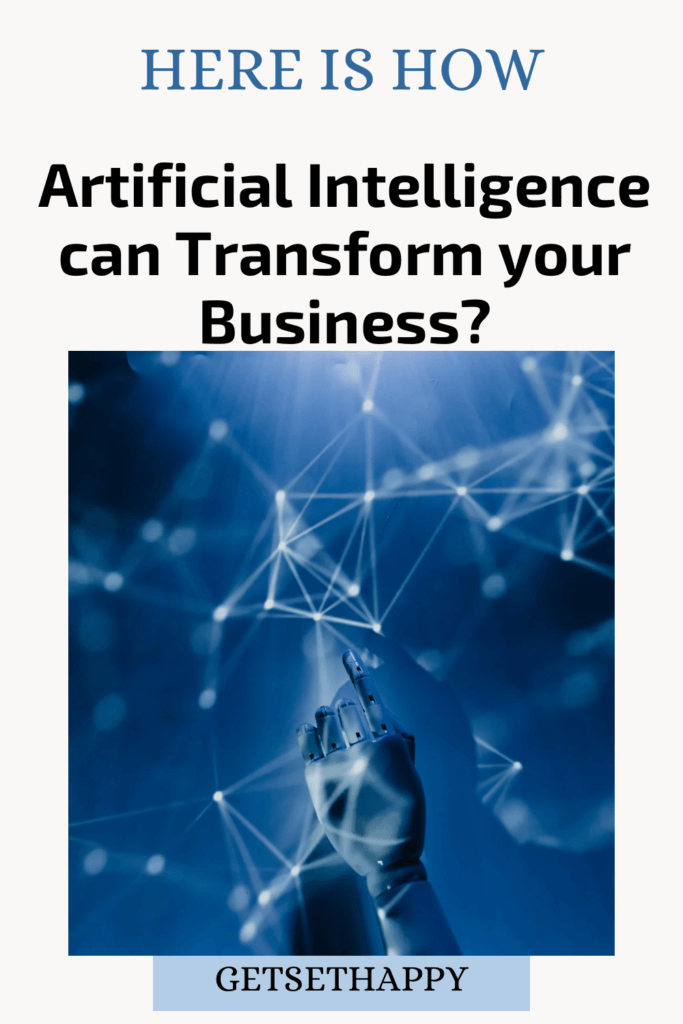It’s been a long that I have discussed anything on business. So, today, let’s talk about an innovative idea for a business – Artificial Intelligence.
When we talk about AI, we still associate it with robots or science-fiction dystopias. Isn’t it? But, we are more closer to artificial intelligence than we know. Hey Siri, Hello Google… is just a voice command away. AI is touching our lives on a daily basis, how can businesses remain untouched by this booming technology? Let’s see how AI has the ability to transform your business.
What exactly is AI?
Before we dig deeper, let’s first understand, what exactly is AI.
Basically, Artificial intelligence or (AI) is a broader term that refers to the technology that performs human-like activities – such as learning, planning, physical activities, and even problem-solving. The whole idea of incorporating AI in businesses or households is to reduce human effort and errors.

Artificial Intelligence in Business World
AI in business acts as a supporting tool to simplify and perform complex tasks. For example, if we talk about Machine Vision; it is often integrated with AI to expedite image processing. According to Multipix, AI in Machine vision can greatly meet exceptionally demanding applications. Besides, it also has a wider scope of decision-making ability in comparison to traditional software.”
These characteristics of AI make it extremely desirable in several industries – whether it’s simply assisting clients, guided learning efficiently, or performing a task as complex as monitoring a giant machine to estimate when it will need repairs. Now, let’s look at some of the common uses of AI in Business.
Common applications of AI in Business
1. Machine learning
Machine learning automates the analytical model building. It can discover hidden insights in data without being hard-coded programming. It is most commonly used to capture large amounts of data. Let’s say, weather data collection systems collect the data with the help of sensors to give near-accurate information, that delivers to your smart device to automatically offer weather reports for any city you are traveling to.
2. Customer relationship management
Artificial intelligence in business is becoming the face of customer relationship management (CRM) systems. Most of the CRM systems need huge human intervention. When AI is applied to such systems, it can be transformed into a self-updating and accurate auto-correcting system. This in turn saves lots of human involvement and related errors. Best example for this could be the banking management system.

3. Cybersecurity
Cybersecurity is one of the severe concerns these days. AI is a great ally in safeguarding computer networks from cyber goons. AI systems can trace a cyberattack by consistently monitoring patterns from data input. As soon as it senses the threat, it backtracks through your data to locate the source and blocks the connection. This serves as a great benefit of AI in Business by preserving the infrastructure.
4. Internet and data research
AI works outstandingly in data collection, which helps in identifying the patterns in the search behavior of the users. This is a great help for businesses and search engines to offer their users, what they are looking for. Businesses can offer the customizable experiences to the users, hence retain their customers. This means small businesses can easily target a specific audience and grow their business.
Closing words on AI in Business
AI in business isn’t a replacement for human intelligence, rather it acts as a supporting tool. It bridges the gap between businesses and end-users, at lesser cost and effort.
Artificial Intelligence is here to stay. As the technology grows, it will become a part of upcoming startups and countless business applications. It can potentially transform the face of the economy and business world across the world.

Featured Image by rawpixel.com on Freepik





1 Comment
Rohit Sharma
January 23, 2023 at 9:11 pmGreat article on the potential of AI to revolutionize various industries. Exciting to see the possibilities for increased efficiency and growth through the implementation of these technologies.